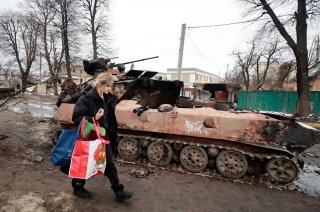International Court of Justice Orders Russia to Halt Invasion
Russian officials boycotted the ICJ’s hearings in early March, describing the Ukrainian lawsuit as “absurd.”
In a ruling on Wednesday, the International Court of Justice (ICJ), the highest judicial body of the United Nations, ordered Russia to end its military intervention in Ukraine and withdraw its troops and allied forces from the country immediately.
Russia “shall immediately suspend the military operations that it commenced on February 24, 2022 on the territory of Ukraine,” the ruling read. It was approved by a fifteen-member panel, with thirteen judges supporting it and two opposed. The two “no” votes were Russian judge Kirill Gevorgian and Chinese judge Xue Hanqin.
Although the decision should be legally binding because Russia is a member of the United Nations, the ICJ has no power to enforce the ruling, and Russian officials have indicated that Moscow will not obey it. Cases involving countries that refuse to obey ICJ rulings are sometimes referred to the UN Security Council—meaning in effect that any of the Security Council’s five permanent members, including Russia, can use their veto power to violate ICJ rulings with impunity.
However, even though the ruling is legally unenforceable, Ukrainian public figures and other supporters of the country have celebrated it as a major moral victory. Ukrainian president Volodymyr Zelensky described the case as a “complete victory,” noting that the order was binding under international law and suggesting that ignoring it would lead to Russia’s further isolation.
Ukraine filed the case with the ICJ shortly after Russia announced its “special military operation” in Ukraine on the morning of February 24. Ukrainian officials argued before the court that the Kremlin’s justification for the invasion, which hinged on the existence of an ongoing “genocide” against ethnic Russians in eastern Ukraine, was legally untenable, as there was no genocide being perpetrated in eastern Ukraine and the UN’s 1948 Genocide Convention does not allow an invasion to prevent one in any case.
Russian officials boycotted the ICJ’s hearings in early March, describing the Ukrainian lawsuit as “absurd.” However, the Russian government did file a written document with the court arguing that it had not justified its decision to intervene in Ukraine based on the Genocide Convention. If there was no legal dispute over a UN statute, Russian officials argued, the ICJ lacked jurisdiction to intervene in an internal matter between Russia and Ukraine.
The ICJ’s ruling rejected this defense, insisting that it had jurisdiction over the case and that its ruling was legal.
“The facts … are enough to say prima facie that there is a dispute between Ukraine & Russia,” the court wrote.
Trevor Filseth is a current and foreign affairs writer for the National Interest.
Image: Reuters.

